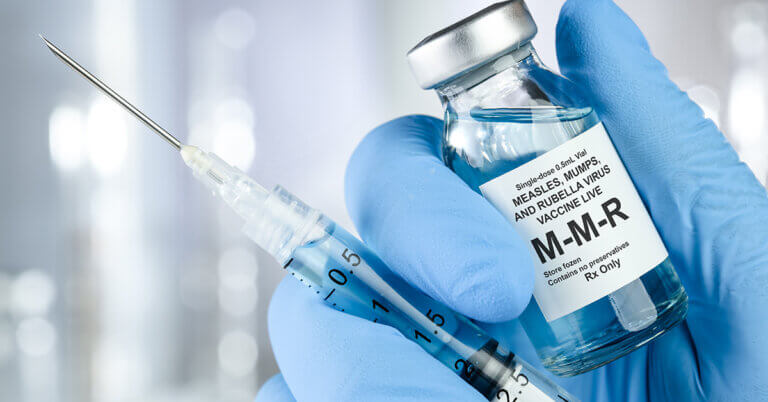August 5, 2020

Pandemic Logic 101: Delayed Collective Gratification Saves Lives and Lifestyles
As the nation strives to return to normalcy while facing an increased prevalence of COVID-19, individual behaviors not only contribute to individual survival but also to the survival of family, friends and strangers. Anticipation, planning, and impulse control are key elements of delayed gratification. During the pandemic, they can strengthen our collective resilience and well-being.
Delaying gratification should not be hard, but it is. Continuing to shelter in place, using face masks assiduously, washing hands conscientiously, and practicing social distancing limit disease spread. Containing COVID-19 is an American imperative. Enhancing our collective ability to delay gratification is essential to regaining a semblance of normal life.
The Marshmallow Test and Beyond
A half-century ago, Walter Mischel led the famous Stanford “marshmallow” experiment. It’s formal title was “Cognitive and Attentional Mechanisms in Delay of Gratification.” Michel’s study placed different four-year-old children alone in a room with a tasty marshmallow. Children were told if they waited a short time before eating the marshmallow, they would get an extra one as a reward.[1]
Children who passed this self-discipline test were generally found to enjoy higher academic success and better physical health later in life. Specifically, “the self-regulated group was socially more competent, verbally fluent, rational, attentive, planful, and able to deal well with frustration and stress.”[2] When older, they were less likely to become obese.[3]
Later studies using larger numbers of children cast some doubt on the Stanford study’s predictive abilities but did link the mother’s educational achievement with her child’s ability to resist eating the marshmallow immediately.[4]
Social determinants of health (SDOH) are responsible for about 80% of health and wellness. Starting in the 1970s, American obesity and severe obesity rates began to climb steadily upward from 42% for adults and 5% for children to the unacceptably high level of 52% and 18.5%, respectively, in 2018. The inability to delay gratification is a key driver of unhealthy lifestyle choices that feed the nation’s obesity epidemic.
Fifty years later, America is sadly experiencing a much more significant negative response to deferring rewards regarding the coronavirus pandemic. The “marshmallow” in this case is the return to many aspects of our pre-COVID life, from shopping at the mall to eating at restaurants. Unlike the marshmallow test, however, individual choices affect our collective ability to achieve the reward.
Another interesting finding from the Stanford and follow-on studies is that trust in the person offering the reward correlates with higher levels of delayed gratification. Results showed children wait longer when they judge the experimenter as reliable.[5]
Beyond self-control, there are other factors society can rely upon to increase delay-of-gratification success. In the current pandemic, trusted public leaders within government and business have increased compliance with proven public health practices through a careful mix of regulation and persuasion. Their leadership has improved the public’s responsiveness and diligence in following safe practices and containing disease spread.
Group behaviors can increase resilience and delayed gratification among connected individuals. In a 2018 study, investigators used the classic marshmallow format with a novel twist: researchers informed select children their friends had or had not delayed gratification to receive a second marshmallow.
Like people everywhere, the children in this study largely followed the herd mentality. They disproportionately did what they thought their friends did.[6] Humans are social creatures who want to be part of a group. Survival over the eons depended on families, tribes, communities, and nations being mutually supportive. In sum, human beings follow and mimic one another.
Another relevant study compared three birth cohorts with similar middle-high socioeconomic backgrounds in the late 1960s, 1980s, and 2000s. The study found that the ability to delay gratification among the cohorts advanced over the decades.
Regarding this improvement, the researchers hypothesized: “increases in symbolic thought, technology, preschool education, and public attention to executive function skills have contributed to this finding, but caution that more research in diverse populations is needed to examine the generality of the findings and to identify causal factors.”[7]
Life-Saving Resilience Increases with Age
COVID-19 is causing significant stress. People’s responses to stress are as important as the stress itself. One historical example illustrates this phenomenon. Founded during WWII, Outward Bound sought to address the troubling phenomenon that stranded young sailors died more frequently than stranded older sailors.

According to The Story of Outward Bound and Why Experiential Education Matters, “The distinguishing factor between young and old was not technical survival skills, but rather that the older sailors possessed self-reliance, selflessness, and core experiences that could guide them through grueling trials.”[8] Age and wisdom beats youth and inexperience.
Modern society has struggled with self-discipline and grit for decades. Overwhelming media ubiquity, as well as rapid and facile travel, make immediate gratification easy and accessible. However technology can also connect individuals within society in ways that support delayed gratification. Marshalling these technologies can improve the collective public health response to COVID-19.
People should exhibit the social behaviors they’d like to see during the pandemic. Wearing masks and physically distancing are obvious and powerful signals that can influence group behaviors. Judging those who are not being observant is not as beneficial as practicing proper activities yourself to model positive behavior.
Acceptance, Self-Discipline and Resilience During C-19
COVID-19 simultaneously creates an individual, organizational, community, state, and national journey. That journey started with naïve denial, moved to reluctant acceptance, transitioned to shelter-in-place, progressed to cautious reopening, and repeat shutdowns. Returning to the “old normal” anytime soon is unlikely. “No Normal” is our current future.
How we react as a society to COVID-19 will determine America’s near-term fate. Individual resilience, trusted leaders, peer behaviors, and tenacity to endure yielded better outcomes in the marshmallow experiments and Outward-Bound. A comparable, collective response to COVID-19 challenge can slow the disease spread and speed recovery.
COVID-19’s biology and the science of pandemic contagions are not malleable. They are givens. Behavioral science teaches that individual and group behaviors can improve. Some Americans have risen to the challenge, but many have not. Promoting and emulating successful behaviors can bring the wayward home for the good of the country and one another.
Sources
- “Cognitive and attentional mechanisms in delay of gratification,” by Walter Mischel, Ebbe Ebbesen, and Antonette Raskoff Zeiss, Journal of Personality and Social Psychology, 1972.
- “The nature of adolescent competencies predicted by preschool delay of gratification,” by Walter Mischel, Yuichi Shoda, and Phillip Peake, Journal of Personality and Social Psychology, 1988.
- “Preschoolers’ Delay of Gratification Predicts their Body Mass 30 Years Later,” by Tanya Schlam, Nicole Wilson, Yuichi Shoda, Walter Mischel, and Ozlem Ayduk, The Journal of Pediatrics, January 2013.
- “Revisiting the Marshmallow Test: A Conceptual Replication Investigating Links Between Early Delay of Gratification and Later Outcomes,” by Tyler Watts, Greg Duncan, and Haonan Quan, Psychological Science, May 2018.
- “Rational snacking: Young children’s decision-making on the marshmallow task is moderated by beliefs about environmental reliability,” Celeste Kidd, Holly Palmeri, and Richard Aslin, ScienceDirect, January 2013.
- “Group Influences on Engaging Self-Control: Children Delay Gratification and Value It More When Their In-Group Delays and Their Out-Group Doesn’t,” by Sabine Doebel and Yuko Manakata, Psychological Science, April 2018.
- “Cohort effects in children’s delay gratification,” by Stephanie Carlson, Yuichi Shoda, Ayduk, Aber Ozlem, Lawrence Schaefer, Catherine Sethi, Anita Wilson, Nicole Peake, k. Philip, and Walter Mischel, Developmental Psychology, 2018.
- “The Story of Outward Bound and Why Experimental Education Matters,” by David Phillips, FSG Reimaging Social Change, January 2013.





